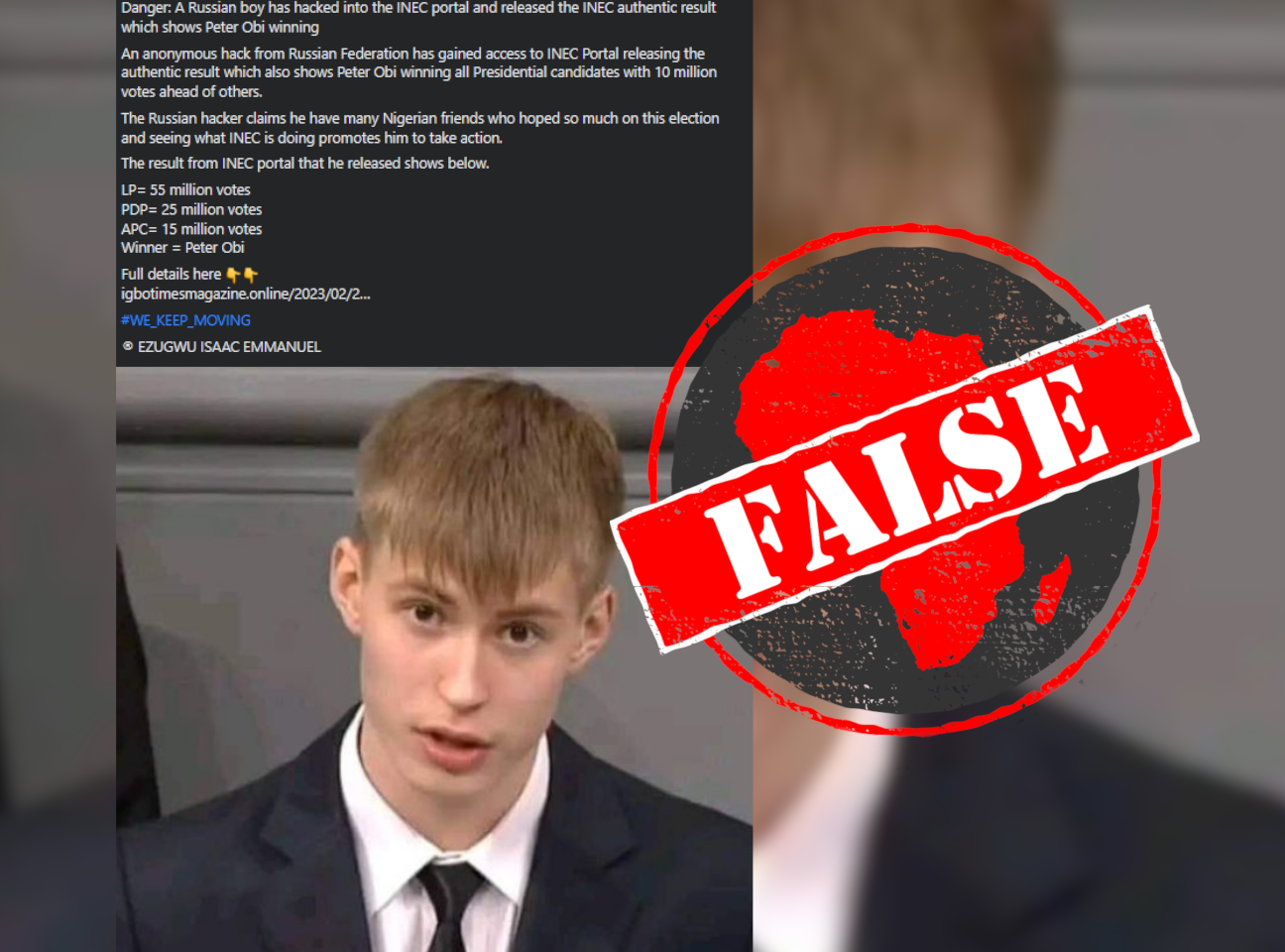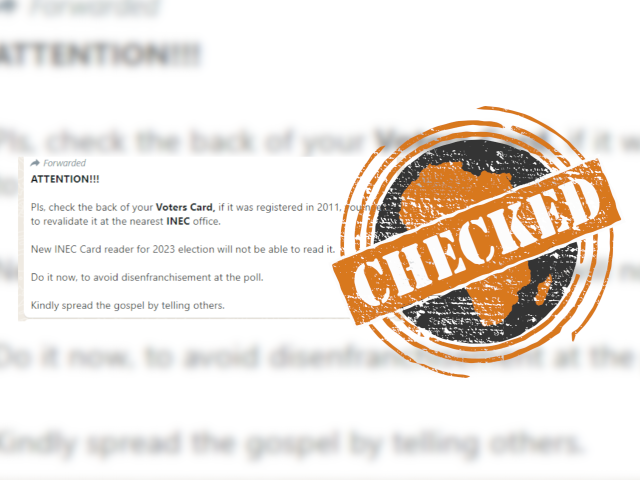IN SHORT: Despite persistent rumours on social media, there’s no evidence that the Nigerian electoral commission’s website has been hacked or that the results released by a Russian hacker show Peter Obi of the Labour Party won the February 2023 presidential election.
A claim is circulating on Facebook in Nigeria that a Russian boy has hacked the Independent National Electoral Commission (Inec) website and released “authentic” results which show Peter Obi won the 25 February 2023 Nigerian presidential election.
The posts include a photo of a young white man in a suit and read, in part: “The Russian hacker claims he have many Nigerian friends who hoped so much on this election and seeing what INEC is doing promotes him to take action.”
Inec is responsible for conducting elections in Nigeria.
Some of the posts include a link to an article published on a suspicious-looking website, which includes the same photo as well as one of Obi and a graph showing the leaked “results”.
Apparently the hacker has revealed that Peter Obi’s Labour Party had 55 million votes, while the Peoples Democratic Party (PDP) had 25 million and the ruling All Progressives Congress (APC) 15 million.
Bola Tinubu of the APC was declared the winner of the election on 1 March.
Tinubu polled a total of 8,794,726 votes to defeat PDP candidate Atiku Abubakar who had 6,984,520 votes and Obi who had 6,101,533, according to results released by Inec.
Abubakar and Obi are challenging Tinubu’s victory in court.
But this viral claim implies Obi actually won the election and Atiku came second, with Tinubu third.
The claim was posted on Facebook here, here, here, here and here, and in the form of a video here.
But was Inec's website hacked by a “Russian boy”?

‘No such thing took place,’ says Inec’s press secretary
Inec’s chief press secretary, Rotimi Oyekanmi, told Africa Check that the post was “fake news” that originated from “mischief makers”.
“No time, either before, during or after the 2023 General Election, were the official Inec website and its Results Viewing Portal hacked by anyone. No such thing took place,” Oyekanmi said.
A Google reverse image search revealed the boy in the photo is in-fact Nikolai Desyatnichenko, who was in November 2017 a 16-year-old high school student from Novy Urengoy in Siberia, northern Russia.
He delivered a controversial anti-war speech to the German parliament at the time. This was reported by various international media, including the BBC and the UK’s Times newspaper.
There is no evidence that Inec’s website was hacked or that the boy pictured in the post has said anything relating to Nigeria’s election results.
Republish our content for free
For publishers: what to do if your post is rated false
A fact-checker has rated your Facebook or Instagram post as “false”, “altered”, “partly false” or “missing context”. This could have serious consequences. What do you do?
Click on our guide for the steps you should follow.
Publishers guideAfrica Check teams up with Facebook
Africa Check is a partner in Meta's third-party fact-checking programme to help stop the spread of false information on social media.
The content we rate as “false” will be downgraded on Facebook and Instagram. This means fewer people will see it.
You can also help identify false information on Facebook. This guide explains how.



Add new comment